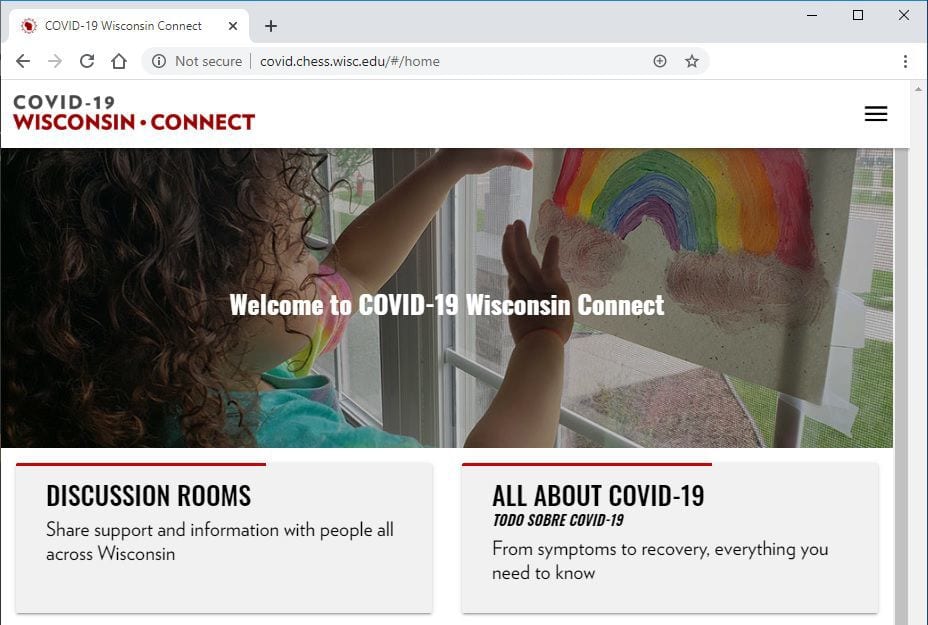04 May UW team launches website, app with COVID-19 resources

covid.chess.wisc.edu and a related mobile app, soon to be available in Google and iPhone App stores, include local discussion boards, meditation exercises, a bilingual fact checker and articles and symptom tracking logs from the Department of Health Services.
COVID-19 Wisconsin Connect, a free website and mobile app, launched Monday with free information, resources and social support for people in Wisconsin during the COVID-19 pandemic.
The Center for Health Enhancement Systems Studies in the University of Wisconsin-Madison’s College of Engineering received a $470,000 grant for the project through the Wisconsin Partnership Program at the School of Medicine and Public Health. CHESS collaborated with faculty, staff and students at the journalism school’s Center for Communication and Civic Renewal, which received a $140,000 subcontract.
The project team, many of whom worked as volunteers, capitalized on existing infrastructure at CHESS, which has a track record of building social support-based health apps. Both the website (covid.chess.wisc.edu) and mobile app, soon to be available in Google and iPhone App stores, include local discussion boards, meditation exercises, a bilingual fact checker and articles and symptom tracking logs from the Department of Health Services.
Marie-Louise Mares, a co-principal investigator, has led a team of seven people, mostly graduate students, who will moderate the app’s discussion boards to answer questions or monitor misinformation. The boards will display usernames, not people’s real names.
Mares said the project felt very personal after navigating the difficulty of returning home from France while her son was ill. She frantically searched the internet for questions about where he should be tested, or how long the symptoms might last.
When she was approached about the app, Mares — whose son eventually tested negative — said she immediately “saw the value in a curated set of information.”
“I desperately wanted to be able to hear from other people, whether they had gone through similar things, how they had tackled” said Mares, a communication science professor. “I wanted to know, for example: What does it feel like to get tested? What should I tell my kid to expect?”



